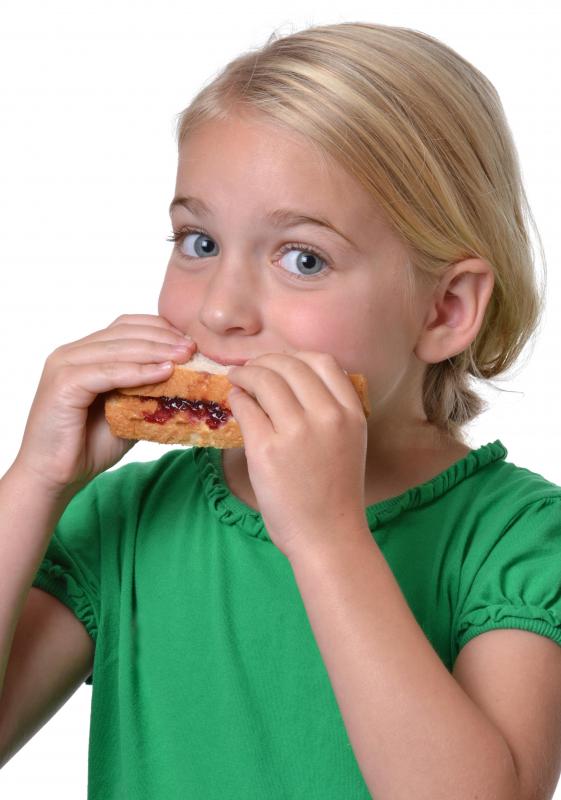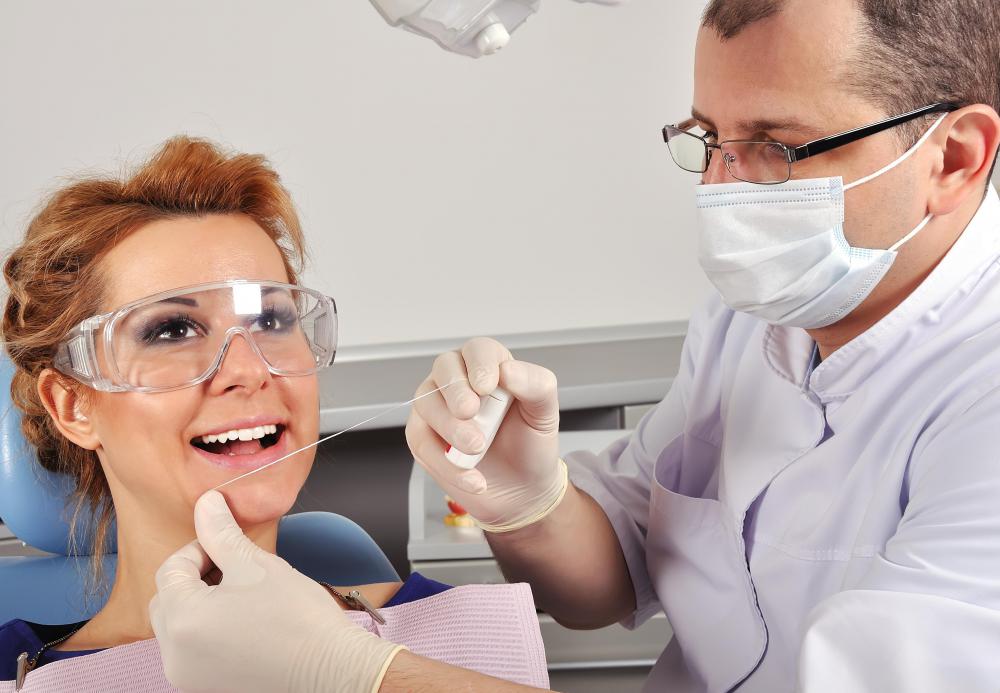At WiseGEEK, we're committed to delivering accurate, trustworthy information. Our expert-authored content is rigorously fact-checked and sourced from credible authorities. Discover how we uphold the highest standards in providing you with reliable knowledge.
What is the Masseter Muscle?
The masseter is a muscle running between the cheekbone, or zygomatic arch, and lower jawbone, or mandible. It has a large superficial portion and a smaller deep portion, both of which are situated close to the parotid salivary gland. In fact the duct which carries saliva from the gland crosses the masseter muscle on its way into the mouth. There are two masseter muscles, one on each side of the skull, and they are very strong — among the most powerful in the human body. A branch of the trigeminal nerve, known as the mandibular nerve, supplies the muscle with nerve impulses which cause it to contract, raising the lower jaw when chewing or speaking.
Clenching the jaw and feeling above the angle of the lower jawbone allows the masseter muscle to be felt. Masseters are involved in lifting up the lower jaw so that the upper and lower sets of teeth can meet when chewing food, a process known as mastication. As the body is normally held upright, the muscle is typically working entirely against gravity. The masseter is one of the group known as the muscles of mastication, which also includes the temporalis muscle and the medial and lateral pterygoids. Together, the muscles of mastication work to grind food substances between the teeth, but only the lateral pterygoid acts to open the mouth while the others close it.

Bruxism, where sufferers grind their teeth during sleep, may cause masseter muscle enlargement and a resulting square-jawed facial appearance. The condition is thought to be associated with stress and subsequent muscle tension. Long-term sufferers may even resort to surgery to reduce the bulk of the muscle. Sometimes masseter enlargement can be so extreme that it leads to blockage of the opening of the parotid salivary gland. This can lead to the gland becoming swollen and infected, and the mouth becoming relatively dry.

Constant tooth grinding may cause inflammation of the masseter muscle and jaw tenderness, together with headaches, neck aches and hearing problems. In the long term, the hinge joint of the lower jaw may be damaged causing clicking and even locking or dislocation. Dizziness, tinnitus, sinus pain and pain on chewing may also occur.
When such problems occur related to the jaw joint, in association with the masseter and other surrounding muscles, they are collectively known as temporomandibular joint disorder. Treatments vary but may involve wearing a mouth splint, following a diet of soft foods and resting the voice. Other recommendations could include stress reduction, application of heat or cold to inflamed areas, and the use of medication such as antidepressants or anti-inflammatory drugs.
AS FEATURED ON:
AS FEATURED ON:

















Discussion Comments
@Nefertini - Do what the dentist says for your bruxism. Sometimes patients who grind their teeth or who have TMJ can get masseter muscle hypertrophy. Botox is a common treatment for masseter gland enlargement. Other options include radio frequency and surgery.
I was told by the dentist that I needed to wear a mouth guard because I grind my teeth at night. Prolonged teeth grinding has resulted in a couple of cracked teeth that will need crowns.
Post your comments